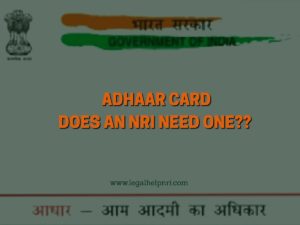 An Aadhaar is a 12-digit random unique identification number issued by the Government of India to Indian citizens. The Unique Identification Authority of India is the issuing and managing agency of the Aadhar Card. This project was introduced by the United Progressive Alliance government in year 2009 under the scheme Unique Identification Authority of India. Any individual who is a resident of India, irrespective of gender and age may voluntarily enroll to obtain Aadhaar number. Primarily Aadhar was introduced for direct transfer of subsidies into citizens bank account. But now the government has expanded the scope of Aadhar. These days the government of India is linking the Aadhaar card with many government functionalities, but there are many privacy and security issues of the Aadhaar database need to be addressed. Currently there are a plethora of identity documents in India like passports, permanent account numbers, driving licenses and ration cards etc. The Aadhaar card / UID will not replace these identification documents but can be used as the sole identification proof when applying for other things. It will also serve as the basis for Know Your Customer (KYC) used by banks, financial institutions, other businesses that maintain customer profiles.
An Aadhaar is a 12-digit random unique identification number issued by the Government of India to Indian citizens. The Unique Identification Authority of India is the issuing and managing agency of the Aadhar Card. This project was introduced by the United Progressive Alliance government in year 2009 under the scheme Unique Identification Authority of India. Any individual who is a resident of India, irrespective of gender and age may voluntarily enroll to obtain Aadhaar number. Primarily Aadhar was introduced for direct transfer of subsidies into citizens bank account. But now the government has expanded the scope of Aadhar. These days the government of India is linking the Aadhaar card with many government functionalities, but there are many privacy and security issues of the Aadhaar database need to be addressed. Currently there are a plethora of identity documents in India like passports, permanent account numbers, driving licenses and ration cards etc. The Aadhaar card / UID will not replace these identification documents but can be used as the sole identification proof when applying for other things. It will also serve as the basis for Know Your Customer (KYC) used by banks, financial institutions, other businesses that maintain customer profiles.
Monnishaa Mahajan, Principal Attorney at Legal Help NRI. Monnishaa has an experience of more than 15 years in assisting and advising NRI's in resolving their disputes in India.
